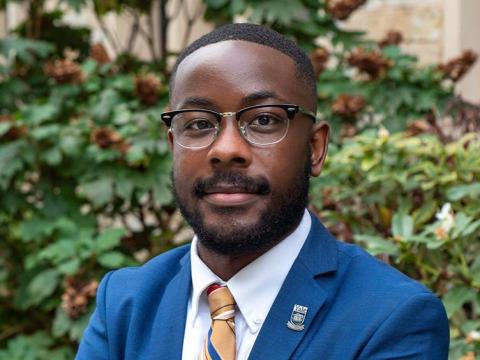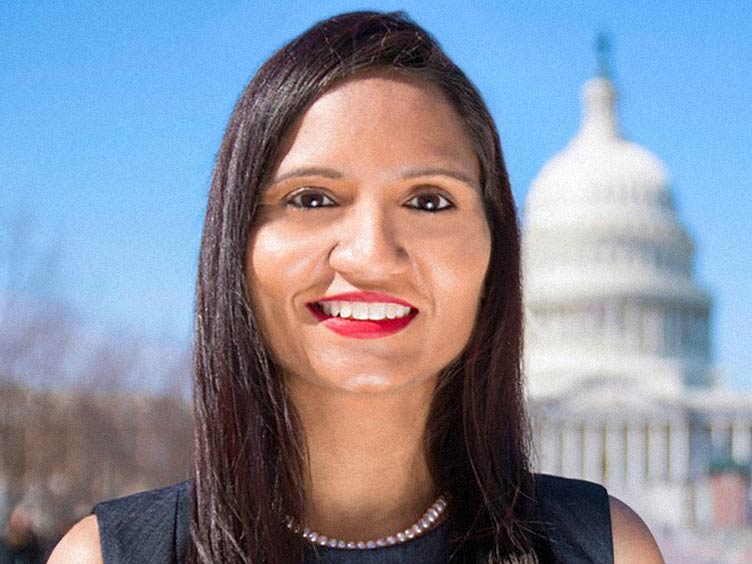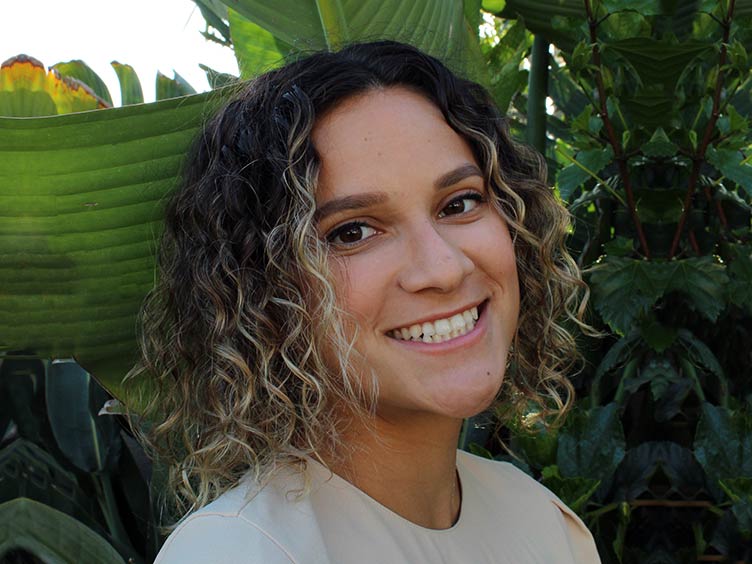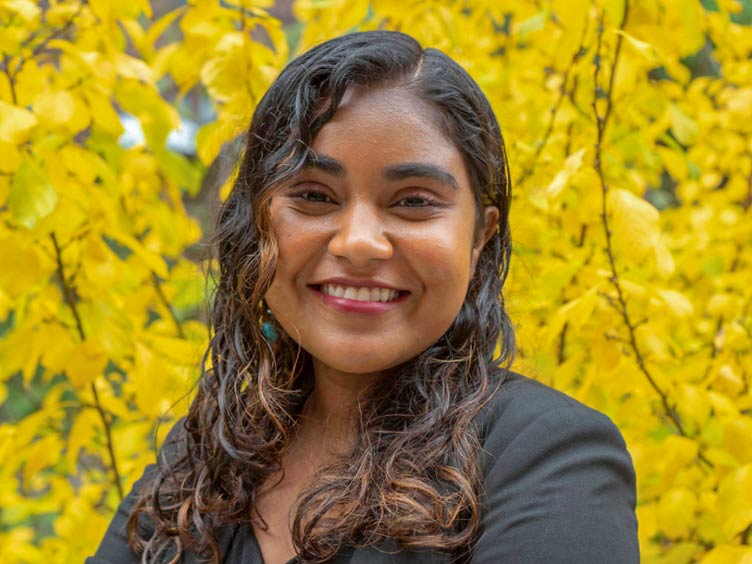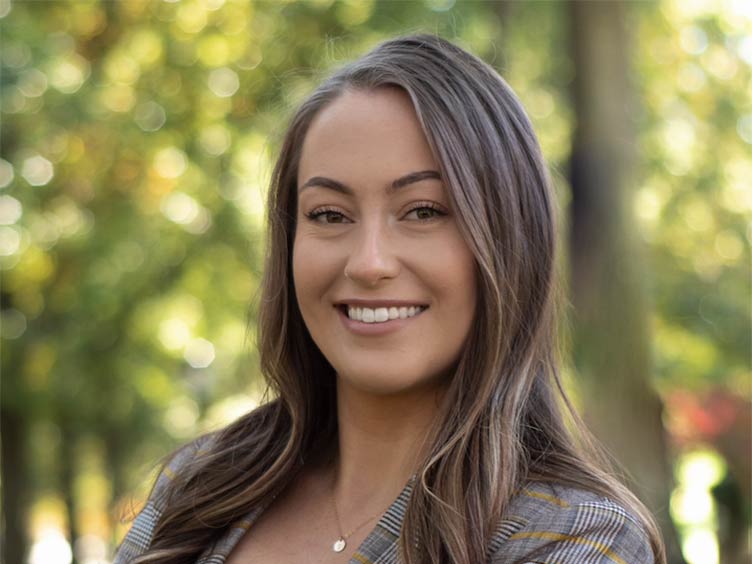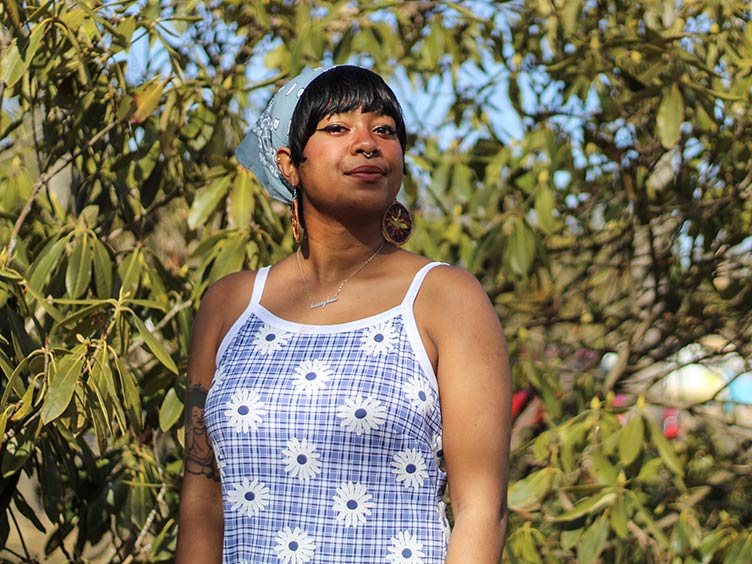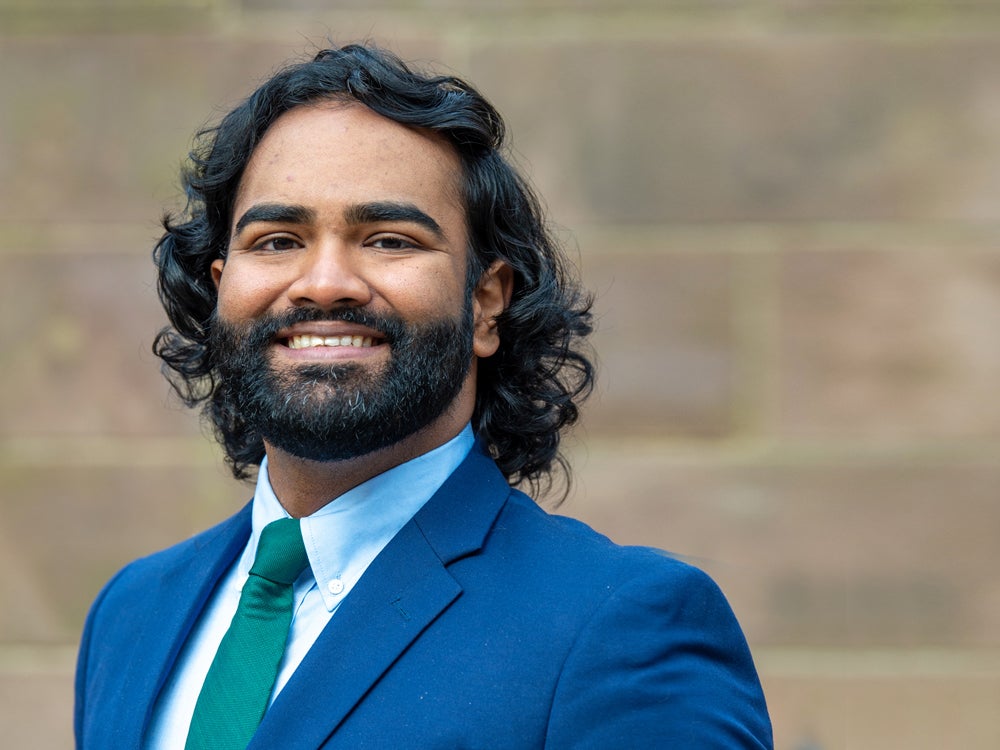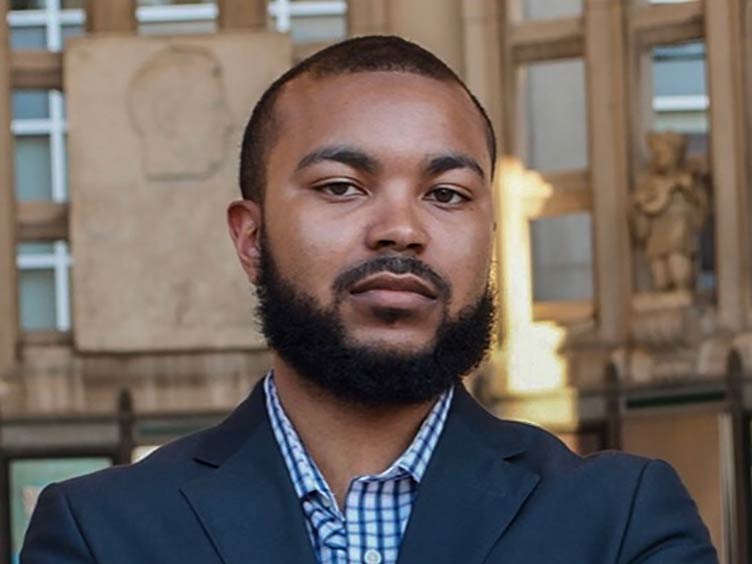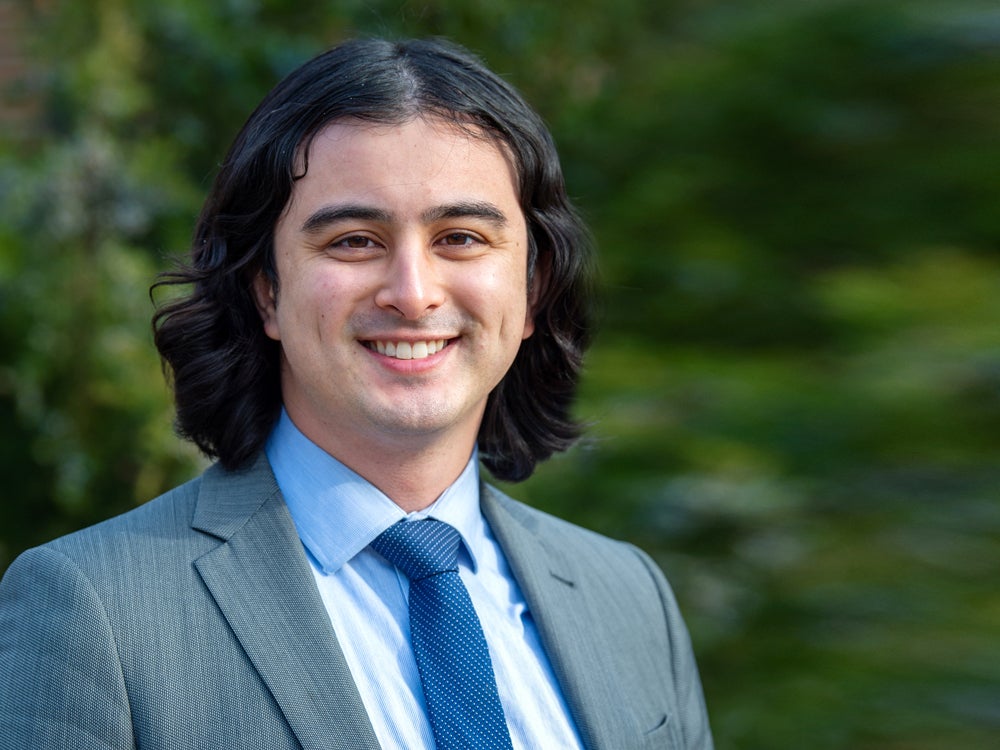Key takeaway from the Environmental Fellows Program: “The knowledge, network, and resources I’ve gained through the fellowship molded me into someone who can be a servant to others.”
Hometown: Birmingham, Alabama
Fellowship host: Race Forward
Next step: Working in the Environmental Justice space
“I’m particularly interested in analyzing the role of racial injustice in shaping land use in the rural South, and I want to support a reemergence of young Black farmers in the South and the restoration of Black-owned land.
“For my fellowship, I’ve been working with an organization called Race Forward, and writing a report that will assess the political and social landscape around today’s climate justice movement. One concept I learned about that deserves more attention is climate reparations. It’s about a lot more than monetary compensation; it includes accountability for those who caused harm to Black, Brown, Indigenous and poor communities. It’s not only about repairing the harm done but implementing changes to prevent that harm from happening again. That’s the most important piece.
“Most people don’t know that in 1920 there were nearly a million Black farmers in the United States. So many lost their land due to racism, and today there are only about 45,000 Black farmers working the land. Ultimately, my education is about acquiring the tools to help them, and to assist Black communities struggling against environmental ills. I want to help amplify the voices of people who, for so long, haven’t had their voices heard.
